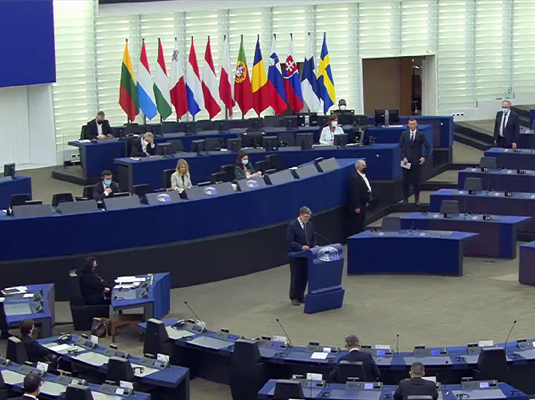"The goal of this regulation implies the establishment of strict transparency obligations for political advertising service providers and the introduction of harmonized rules within the EU on the use of the so-called targeting and political ads that use personal data", explained Picula.
He added that "one of the main priorities of the regulation was the creation of an online European repository for all political ads that would include ad copies and detailed information on the sponsor's identity, the amount spent on the campaign, as well as engagement metrics. This is a great victory since in this way institutions and civil society organizations will have much better insight into political campaigns."
However, this is a specific area, so he recalled how in S&D he had already fought for a ban on the use of personal data in advertising in general, but for political targeting, the audience had to accept compromise solutions such as banning the use of sensitive data, locations, political preferences, in accordance with the INGE report, which deals with the prevention of foreign interference in all democratic processes in the European Union, including disinformation.
In order to facilitate the identification of political advertisements, S&D advocated the introduction of objective criteria that should be taken into account in order to determine the message of political advertising. At the same time, all information related to a political ad or political advertising campaign will have to be kept for 10 years in the repository, Picula explained.
“Also, political ads must contain tags and extensive information. Detailed transparency notices must be provided by political ad publishers. Of course, they will also introduce penalties for non-compliance with these rules."
As for the views of the MPs on regulation, he reminded that "he has been dealing with the topic of using fake news and propaganda in the service of destabilizing EU members and institutions since 2014, and apart from participating in the preparation of some earlier reports of the EP, he has been involved several times throughout the year spoke on the subject. Namely, it was already clear then that after the Great Recession in 2008, the geopolitical rivals of the European Union, namely Russia, and China, invested a lot of money in troll farms, which produced and distributed fake news with the aim of creating distrust in the institutions and democratic processes in the member states. And they were extremely successful in this for years, until the EU recognized the danger and began to prevent the distribution of such fake articles. It is time for political advertising to be clearly labeled.”
Regarding the possibility of ad abuse, Picula explained: "Gathering the interest of social network users for targeted advertising is not unknown, but literally the way targeted advertising is enabled. The abuse stems from the very nature of what is being advertised to them, in this case, political ads that manipulate facts or send inaccurate, malicious, inflammatory messages.”


